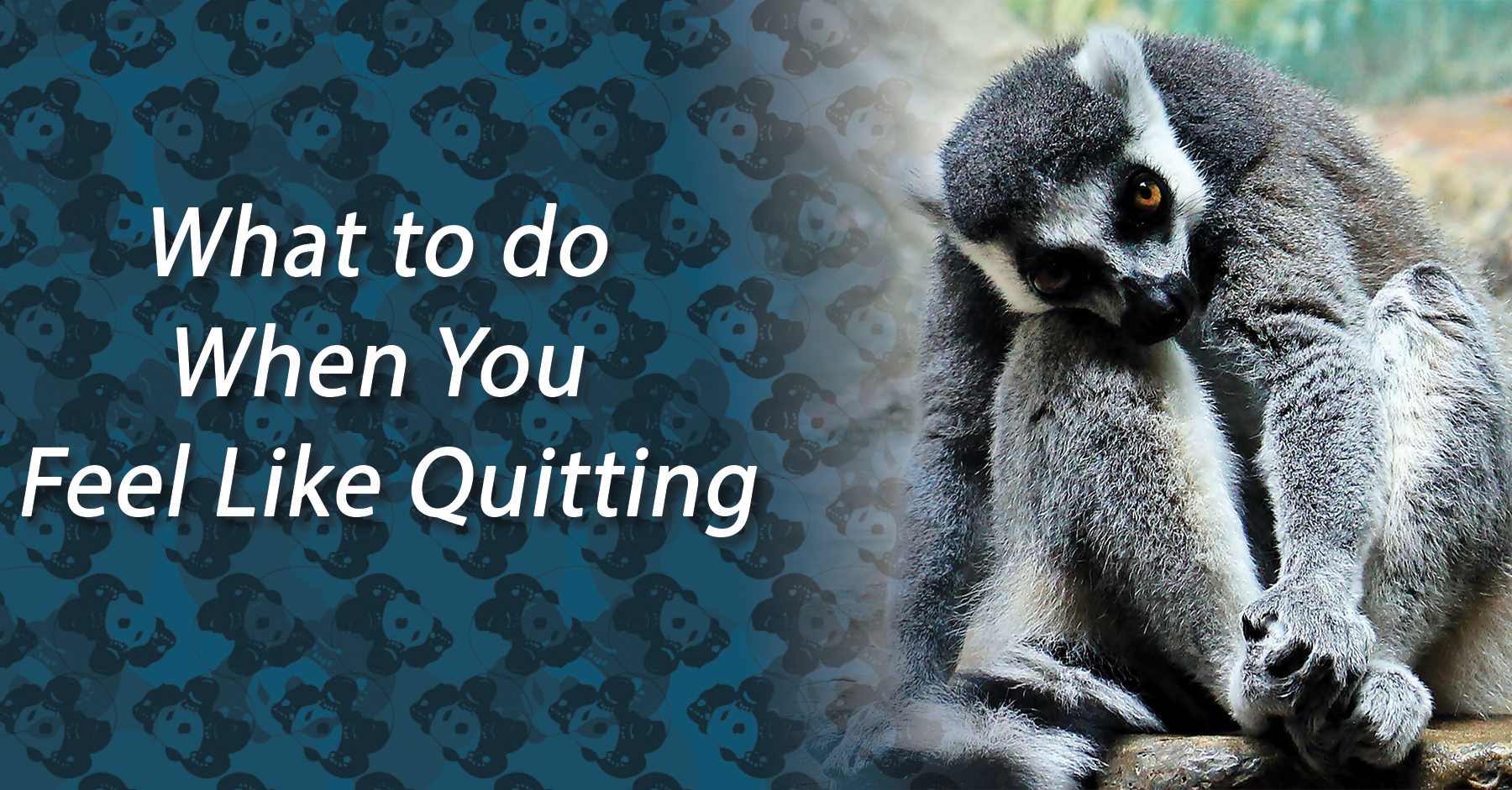
What to do When You Feel Like Quitting
There seems to be a near-universal experience for Jiu-Jitsu players in which they encounter a setback (usually at white or blue belt), and then consider quitting. Sometimes the setback is external: an injury, an ultimatum from a spouse or significant other (you’re training too much!), or a clash of personalities with an instructor or other students. Internal setbacks often look like growth plateaus, frustration that impedes performance, or dysfunctional cognitive/behavioral patterns. You can learn a lot about somebody’s psychological state by a) listening to them talk about their game and b) watching them during a roll with a more-skilled opponent, for example.
This is perhaps an unpopular opinion, but here it is: If you’re experiencing these symptoms, you should quit. But before you quit, let me explain.
Commoditized Jiu-Jitsu
Jiu-Jitsu has become commoditized and increasingly mainstream. Ultimately, I think this is a net positive because it exposes more people to a great martial art, and it helps more people who love this martial art to make a living.
But with that move toward the mainstream comes a bit of a dilution of intention. While I love a story about the “good old days” of Jiu-jitsu, full of dojo storming and brawls on Brazilian beaches, I’m glad I didn’t have to duke it out. Writing while concussed is difficult.
There's a balance between a martial practice that honors its roots (in our case, a fight in which one person is trying to severely harm the other), but is accessible to a wider audience. However, that art shouldn’t become completely unmoored from its origins. Jiu-Jitsu is supposed to be physically and mentally difficult.
I see this with yoga and mindfulness/meditation, for example. People have outsourced yoga and mindfulness/meditation to achieve mental states (relaxation, as well as mitigation of stress, anxiety, and depression, etc.) or physical states (pain reduction, increased flexibility/mobility, etc.). I’m neither a yogi nor a monk, but I think it’s fair to say that this was not the intention behind either of these ancient practices. Nobody was doing yoga on Lululemon mats in ancient India, looking to loosen their hamstrings or build core strength. Commoditization has stripped these two ancient practices of their original, spiritual intentions and instead have placed the focus on some of their potential secondary benefits.
The same thing has happened and is happening in Jiu-Jitsu, to a degree. People come to the mats for many reasons, some conscious and intentional, others less so. Some want to lose weight and get fit, for example. Great, but you can lose weight and get fit by doing myriad other things. Others want to feel more empowered. Wonderful, but you can also cultivate a healthier inner state by working with a licensed mental health professional. Most likely, your Jiu-Jitsu instructor isn’t a mental health professional or a fitness instructor, and if they are, they’d probably prefer that you see them in those respective professional settings and not on the mats.
What to do instead
If you feel like quitting, then go through this mental exercise: Simulate quitting.
Sit down someplace you won’t be bothered for a while. It should be quiet and free of technological distractions. Picture yourself walking into your academy and greeting your instructor. Picture their face in your mind’s eye. Tell them that you’re quitting. Say it simply. “I’m quitting.” Wait a moment. Notice their facial expressions. Notice what your instructor’s emotional reaction makes you feel.
Now, explain your reasons to them (aloud or in your head). Again, all the while, pay attention to what feelings are arising. You might feel shame, anger, disappointment, sadness. All of this is important. Just notice it. Write the feelings down, if you have to, without elaboration. When you’re done explaining your reasons, picture leaving the academy.
By now, you’ve got a list of feelings. This may make you uncomfortable. Good!
Look at that list and ask yourself, how many of these feelings have to do with Jiu Jitsu, and how many of these feelings have to do with me? How many of the feelings can you connect to parts of your personality, your past, or your beliefs, and how many of those feelings are specifically about Jiu-Jitsu? Chances are, many (or all of them) took root somewhere in you long before you started training. You merely outsourced them to Jiu-Jitsu to deal with.
You may be asking, so, why should I do Jiu-Jitsu? To be honest, it’s not something I can answer for you. I’m not even sure it’s something I can answer well for myself -- yet.
The best I can offer is a personal belief: That done at its best, Jiu-Jitsu is a practice done for its own sake. You do it because you love it. Many of us, myself included, came to it with noble but somewhat superficial intentions, like the ones mentioned earlier in this post (fitness, mental resilience, etc.). But in embracing the practice of Jiu-Jitsu, these noble yet superficial reasons fall away, showing us something more profound: We learn to love and embody the martial art.
Jiu-Jitsu isn’t a means to an end, it’s a means that doesn’t end. Jiu-Jitsu doesn’t solve for X. It’s a practice. Do it because you love it. Do it because it calls to something deep inside of you. Do it divorced from outcome.
Now, do you really want to quit, or were you outsourcing your Jiu Jitsu? I hope you’ll stay.
Joe Hannan is a writer, consultant, and purple belt at Princeton Brazilian Jiu-Jitsu. You can see more of what he’s up to here or follow him here.
Other articles:
Quick links
Contact us
About us
Quality BJJ gear at fair prices, available all year. Founded in 2012 to provide an alternative to high-cost, limited edition gis. Dive into the BJJ lifestyle with us—join the Panda Nation!"
